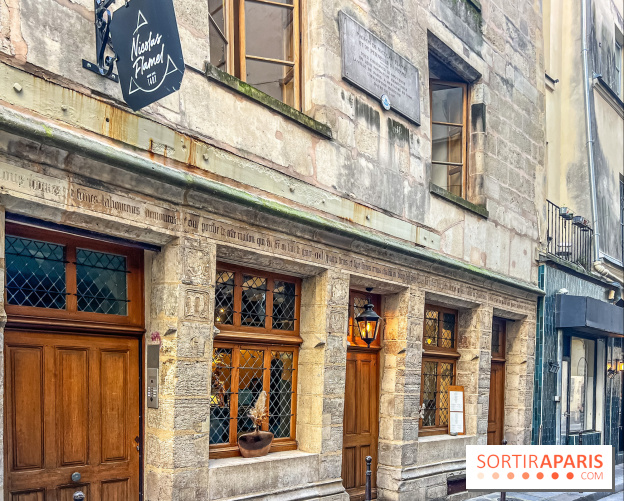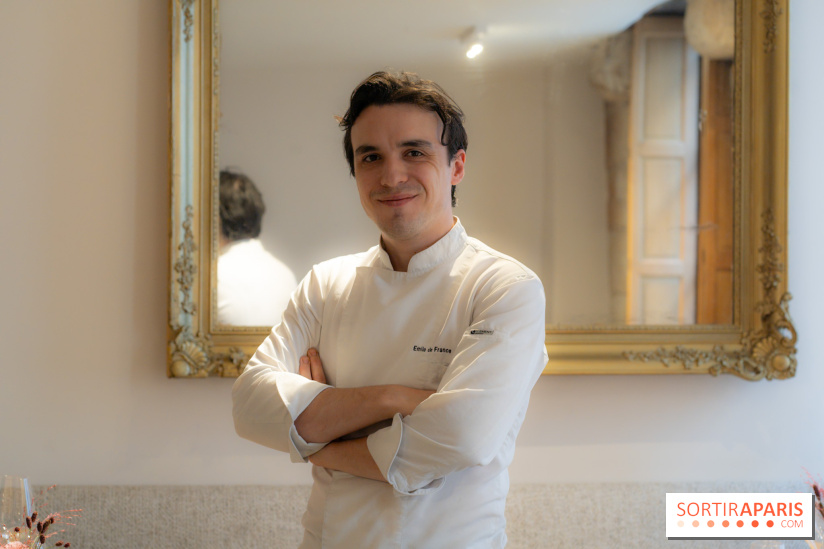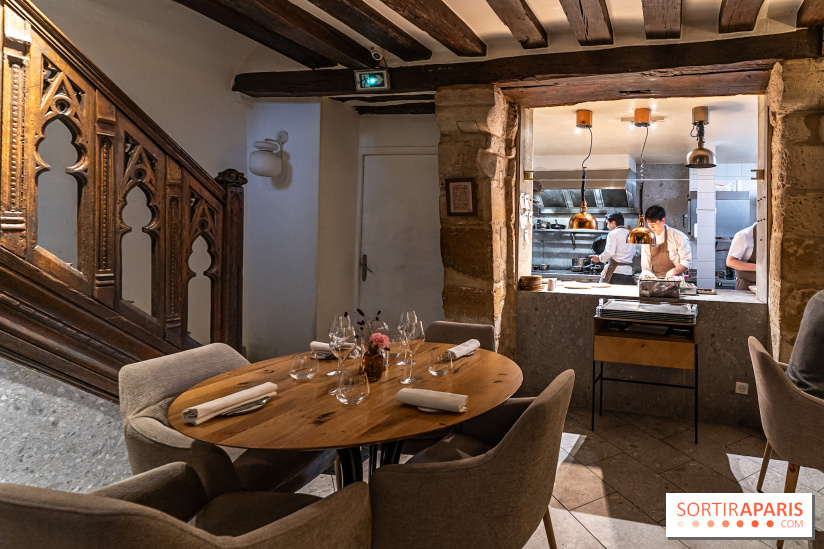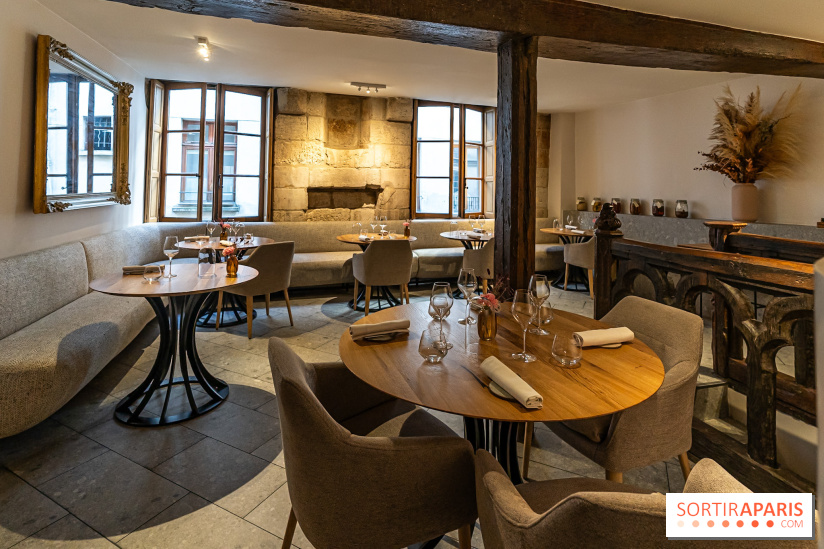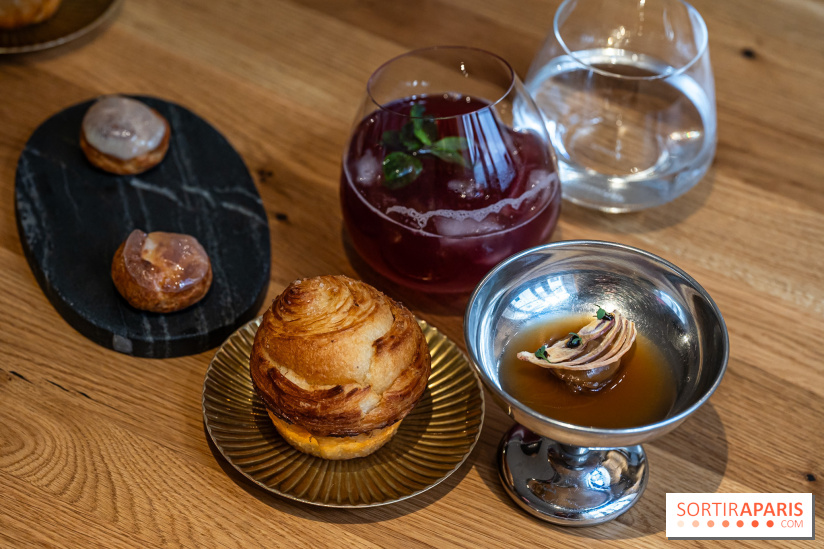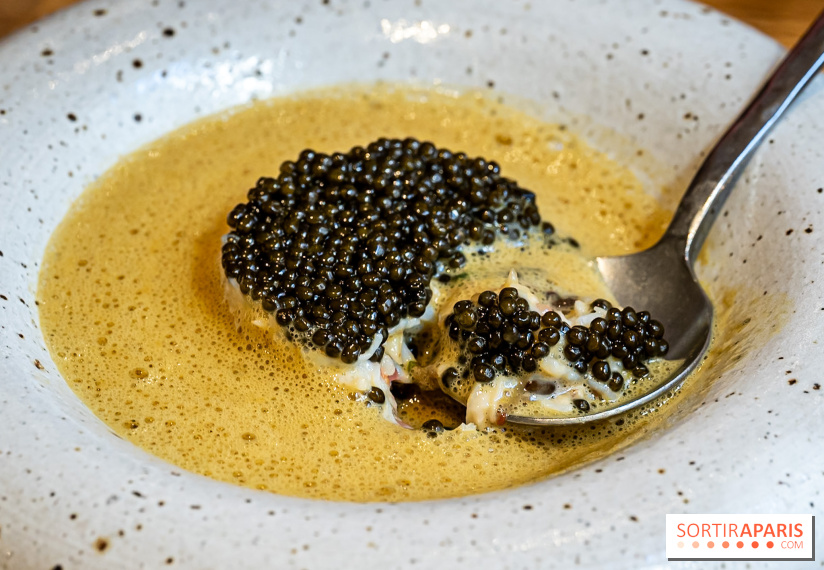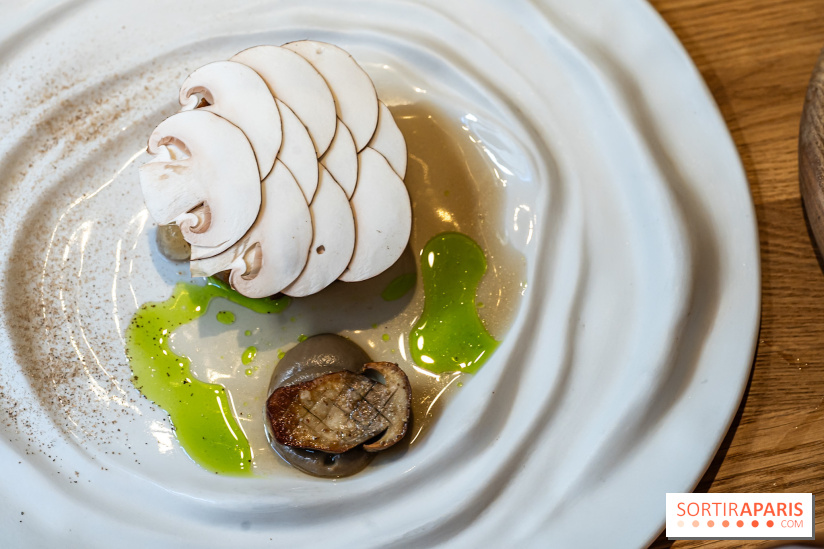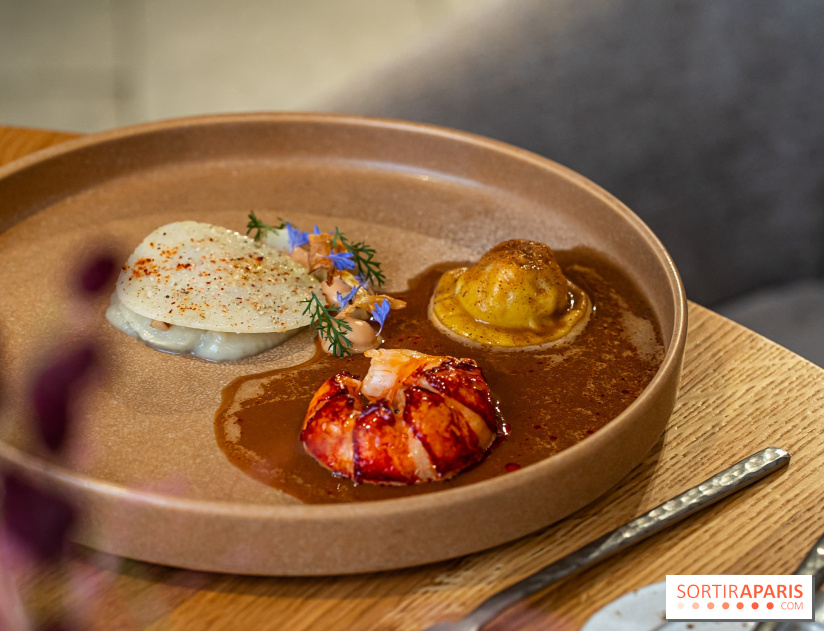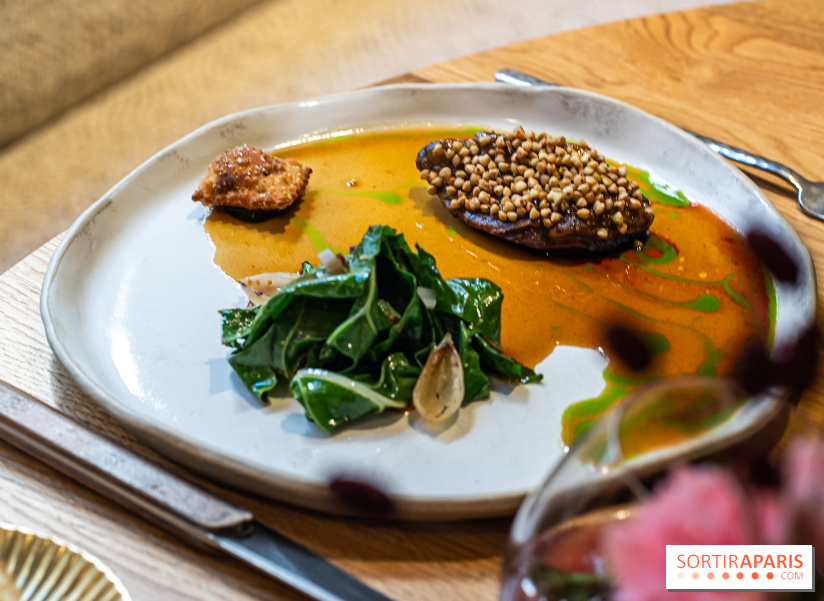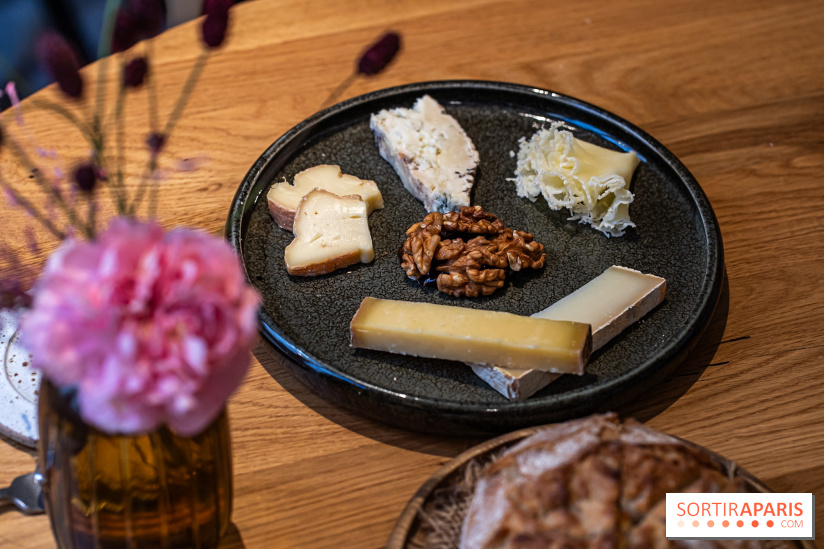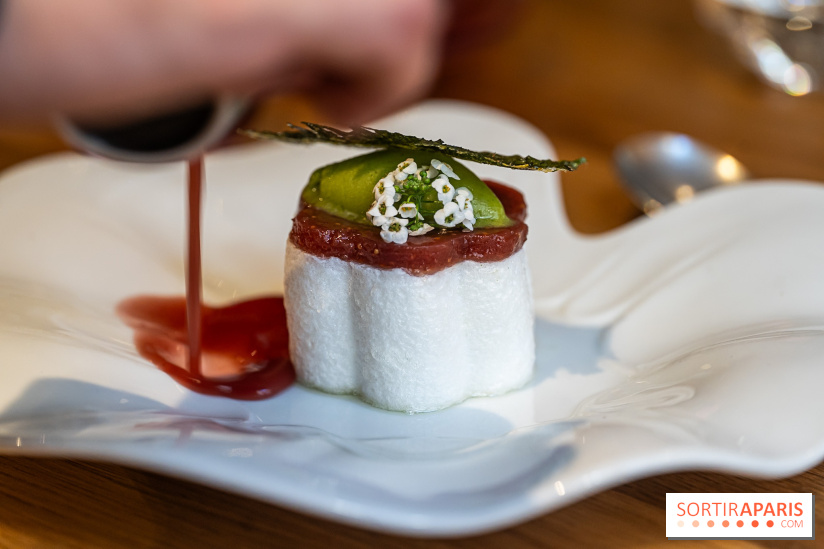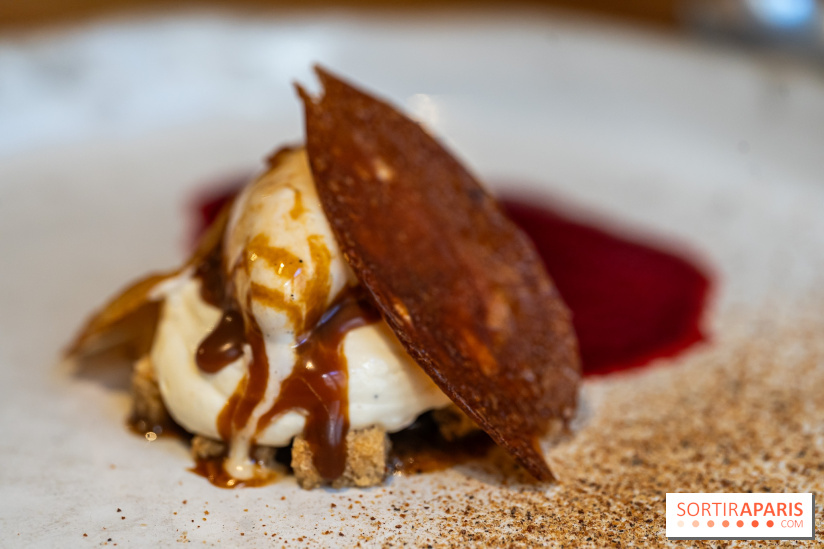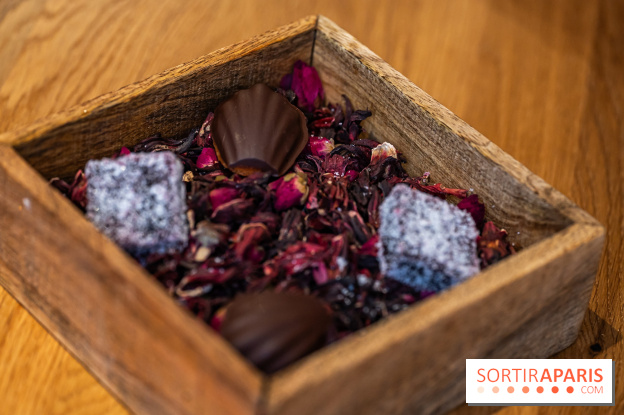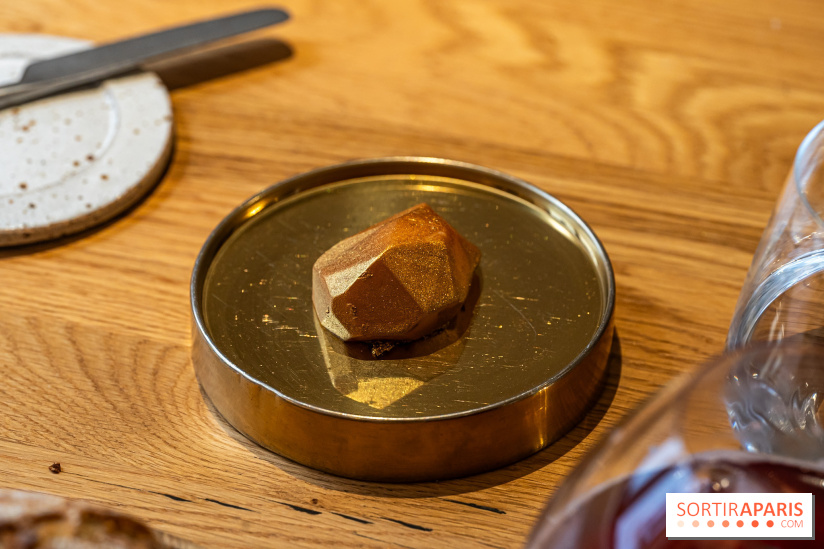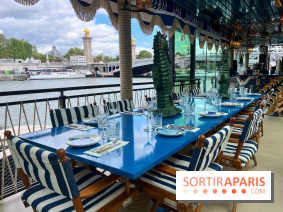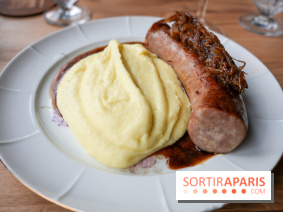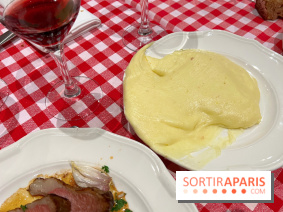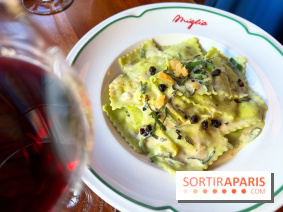The Auberge Nicolas Flamel, located at 51 rue de Montmorency, nestles in a discreet Parisian alleyway, revealing a preserved medieval façade, a place steeped in history and mystery. Entering this listed building plunges you into an ancient Paris, creating a unique atmosphere for a meal where the flavors of the past rub shoulders with touches of modernity.
Taken over by Alan Geaam in 2007, the restaurant follows in the footsteps of the Franco-Lebanese chef, who pays tribute here to the great French culinary tradition. Since November 2023, Émile de France has been at the helm, bringing the creativity and savoir-faire he forged at the Hôtel Thoumieux and Le Pavyllon to his bold, inspired menus.
The restaurant offers various menus ranging from 48 to 148 euros, depending on the level of gastronomic discovery required. The Menu Déjeuner, priced at 48 euros, includes a carefully crafted starter, main course and dessert, perfect for a tasty mid-day break, available from Tuesday to Saturday. For a more complete experience, the three-course Menu Découverte is priced at 78 euros, followed by the five-course Menu Saveur at 118 euros, and finally the prestigious seven-course Menu Signature at 148 euros. These menus invite you to savor the finest products, from appetizer to dessert, highlighting quality, local ingredients. In addition, food and wine pairings are available from 45 euros, an option that enhances each dish and reveals all its finesse.
The restaurant has two floors. The first floor overlooks the kitchen, where you can watch the chefs at work. A few wooden tables, comfortable seats and benches, and a refined, modern decor, highlighting the stonework and exposed beams, form the decor of the place. You'll be seduced by the period staircase and the more luminous upstairs dining room.
The Signature Menu we tested, imbued with creativity and respect for the product, opens with surprising amuse-bouches, such as the " soupe à l'oignon en version solide ", in which Roscoff onions are worked in several forms. These first bites, both comforting and original, demonstrate Émile de France's desire to revisit the classics without losing their essence. We accompanied it with an excellent homemade kombucha.
The starters also reflect this blend of French terroir and innovation: the tourteau de Plouguerneau is sublimated by green lentils from Le Puy and a lemon caviar mayonnaise, all enhanced by French caviar from Prunier. This appetizer offers a combination of marine and vegetable textures, balanced by the freshness of the lemon.
Another appetizer as beautiful as it is refined, the wild mushroom dish, seasoned with Ossau-Iraty and accompanied by fresh hazelnuts, seduces with its earthy nuances and the vegetal touch of a lovage sorbet.
The main courses are a delight, showcasing exceptional products. Perfectly cooked Breton blue lobster, roasted in butter and then smoked on the barbecue, is served with claw ravioli and variations of artichoke and quince. The delicacy of the lobster meat is enhanced by lightly lemony and herbaceous notes, offering an elegant dish without exaggeration.
Our favorite is the Racan pigeon, cooked on a trunk and lacquered in its own juices, which combines textures with puffed buckwheat seeds and a Monegasque raviole stuffed with chard and pigeon. To try it is to adopt it, and we recommend it. With its tender texture and sharp tastes, it's a wonderful discovery for us.
The selection of mature cheeses from Bernard Mure-Ravaud's Fromagerie des Alpages is a welcome transition to the desserts.
These are the work of pastry chef Jordan Papineau, who proposes an elegant fig and shiso blancmange, accompanied by a Marseille fig marmalade and shiso sorbet, playing on light, fruity flavors. A fresh dessert to round off the meal.
Second dessert, the " Vanille, Mûre et Café ", combining a rye praline, vanilla cookie, vanilla cream, vanilla ice cream, blackberry juice with coffee, peated whisky caramel and fresh blackberries with gavottes. Melt-in-your-mouth, fresh and crisp, all lightly spiced with peated whisky, this is the perfect way to end a meal.
Finally, mignardises such as blackcurrant pâte de fruit and chocolate madeleine end the meal on a sweet, familiar note, recalling the simplicity of the sweets of yesteryear. At L'Auberge Nicolas Flamel, Alan Geaam and Émile de France succeed in taking us on a journey through time and flavors, for an experience where each dish carries the history and spirit of the place.
Nicolas Flamel, an enigmatic figure of the Middle Ages, is a name associated with alchemy and the mystery of the Philosopher's Stone, believed to turn lead into gold and grant immortality. Yet this native of Pontoise, born in the mid-14th century, was not an alchemist in his lifetime, but rather a copyist and public writer. Flamel grew up in a century troubled by the Hundred Years' War and the ravages of the plague. Despite this difficult context, he managed to build up a considerable fortune, thanks first and foremost to his profession, but also to an advantageous marriage with Pernelle Flamel, a wealthy widow.
Nicolas Flamel opened a small copyist's shop in Paris. At a time when monks were losing their monopoly on copying manuscripts, he took advantage of the rise of cities and universities to establish his reputation. Flamel and his wife used their wealth to finance major urban and religious projects in Paris, and their charitable work was notorious. Profoundly religious, Flamel helped refurbish numerous churches and had his initials engraved on the buildings he supported. The Flamel couple also remained close to the most destitute, building homes for the poor - a rare and precious act in times of famine and inequality. One of these houses, on rue de Montmorency, still exists today, and is the oldest house in Paris.
It was only after his death that Nicolas Flamel became associated with the secrets of alchemy. His intriguing fortune and the symbolic engravings adorning the buildings he financed sowed doubt. In a Paris plagued by inequality, rumors spread: what if Flamel had discovered the secret of immortality and the Philosopher's Stone? Generations of curious onlookers, fascinated by the mysterious inscriptions, saw Flamel as an alchemist with esoteric knowledge. Over the centuries, this myth has blossomed into an integral part of literature and popular culture, where Nicolas Flamel has become a mysterious figure, notably in the Harry Potter saga, where he is portrayed as an old alchemist who has unlocked the secret of immortality.
The historical reality of Nicolas Flamel differs from the myth, but his name remains emblematic. Beyond the image of the alchemist, it is the imprint of his social actions and spiritual commitments that remains. Through him, we rediscover an era marked by the quest for mystery and the thirst for transcendence. Flamel, in short, embodies the fusion of history and legend, reminding us how imagination and mystery can transform a man into an immortal figure. For fun, note that the restaurant serves bread with a welcome butter in the shape of a philosopher's stone.
Please note that it's been over 4 years since our last visit, so the place and experience may have changed.
This test was conducted as part of a professional invitation. If your experience differs from ours, please let us know.
Dates and Opening Time
Starts November 7, 2024
Location
Nicolas Flamel Inn
51 Rue de Montmorency
75003 Paris 3
Access
M° Rambuteau
Official website
auberge.nicolas-flamel.fr

